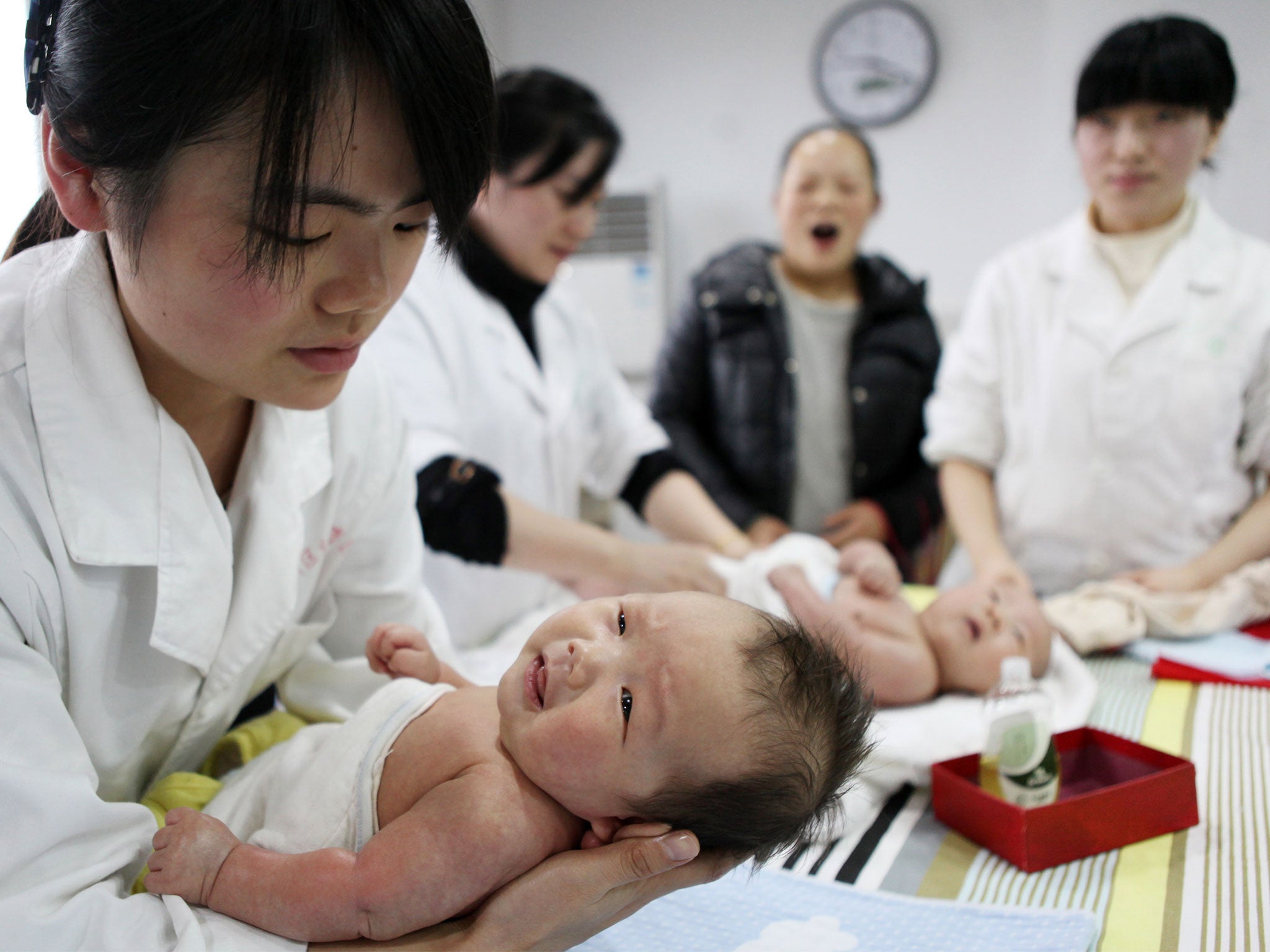China worries over plummeting population amid reports deaths outstripped births for first time
‘2018 will be remembered as a historical turning point for Chinese population,’ researchers say

China may have reached a “historical turning point” after some estimates suggested deaths outstripped births in the world’s most populous nation last year for the first time since records began.
Early data from local health departments across the country estimates no more than 15 million children were born in the country in 2018 – at least two million fewer than the previous year.
Some believe the actual figure may be much lower, with one expert claiming the Chinese population is now in decline despite the abolition of the government’s one-child policy in 2015.
Yi Fuxian, a scientist at the University of Wisconsin-Madison, told the state-owned Global Times newspaper his research suggested just 10.3 million people were born in China last year, while 11.6 million had died.
Dr Yi, a long-standing critic of Beijing’s efforts at population control, warned population could “fall drastically” in the future without efforts to increase fertility.
A new paper, co-authored by the researcher and Peking University economist Su Jian, argues the drop in births during 2018 is likely to form part of a wider trend.
“The year 2018 will be remembered as a historical turning point for Chinese population,” the pair wrote in a copy of the paper sent to the South China Morning Post.
“The Chinese population has started to fall, the ageing problems has accelerated, and economic vitality has weakened.
“A great nation, which once upon a time accounted for nearly a third of the world’s total population, is gradually degenerating into a small group of the old and the weak thanks to wrong demographic policies.”
Local media outlets across China have reported a fall in birth rates throughout the year, most starkly demonstrated in Shandong, where more children were born than in any other province during 2017.
In the first 11 months of 2018, authorities reported fewer than 65,000 babies had been born in Liaocheng, a city of more than five million people in Shandong, a fall of 26 per cent on the same period a year earlier.
In Qingdao, an even larger city in the province home to nine million citizens, births fell to 81,000 between January and November last year, a decline of 21 per cent on the year prior.
Following decades in which the state aimed to restrict the number of children that parents gave birth to in order to control population, China is now looking at what measures it can take to boost fertility.
With life expectancy increasing, almost a quarter of the country’s population is expected to be over the age of 65 by 2040, a statistic that could prove problematic unless there is a large enough work force to support an ageing society.
However, raising the birth rate could prove a difficult task, with the number of Chinese women between the typically child-bearing ages of 20 and 39 expected to drop by more than 39 million over the next decade.
China's National Statistics Bureau recorded 17.86m births in 2016, with the country's total population increasing by 1.31 million. A year later saw 17.23m births, a fall of 630,000.
Subscribe to Independent Premium to bookmark this article
Want to bookmark your favourite articles and stories to read or reference later? Start your Independent Premium subscription today.

Join our commenting forum
Join thought-provoking conversations, follow other Independent readers and see their replies